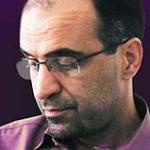Just a Hastier Russia

Should we be surprised to hear that Celso Amorim, the Foreign Minister of Brazil –a signatory of the Tehran Declaration- has stated that “Brazil respects sanctions imposed by the U.N. Security Council against Iran” But wait. The actual quote is: “Brazil meticulously respects” the sanctions.
It was quite predictable that Brazil –cognizant of international diplomatic realities and aspiring to upgrade its global position- would sooner or later express support for punitive measures, however unfair they may be. Like in any other representative state, President Lula and his cabinet heed national interests to regulate the economic and diplomatic relations of their country.
Assuming –with solid evidence- that in the Tehran negotiations Brazil in fact served the Americans’ commissioner, Amorim’s remarks, only two weeks after his boss signed the Tehran Declaration, should not come as a surprise (read Obama’s letter to Lula, leaked by Brazil).
In all fairness, why should we expect Brazilian resistance and opposition to the will of global powers when they receive insufficient diplomatic and economic benefits from defending Iran’s nuclear program? Haven’t we learned anything from the way our so-called ‘supporters’ -Russia and China- have treated us in the past few years? As soon as their eyes fell upon the West’s allure, they did not hesitate to do a U-turn and fill the consensus gap among UN Security Council permanent members over a new sanction resolution against Iran. Brazil is perhaps Iran’s new Russia; only a little hastier to join the West’s chorus line.
Brazil’s behavior once again has lent credit to those Iranian political observers who have demanded face-to-face talks with the main opponent of Iran’s nuclear program, namely, the United States. These observers believe that since the start of the dispute over its nuclear program, Tehran should have entered direct negotiations with Washington. For Tehran, this is still the best means to gain diplomatic and economic advantages, take a more transparent, less controversial stance, and bypass brokers for whom breaking the impasse is actually the least of their real concerns.
The invaluable capital of diplomatic experience we have gained throughout recent decades –particularly within the past thirty years- shows that whatever crisis we have managed to resolve has been dealt with not through resorting to intermediates, but via face-to-face negotiations. So why not talk directly with the Americans? That is how the professionals would do it.

